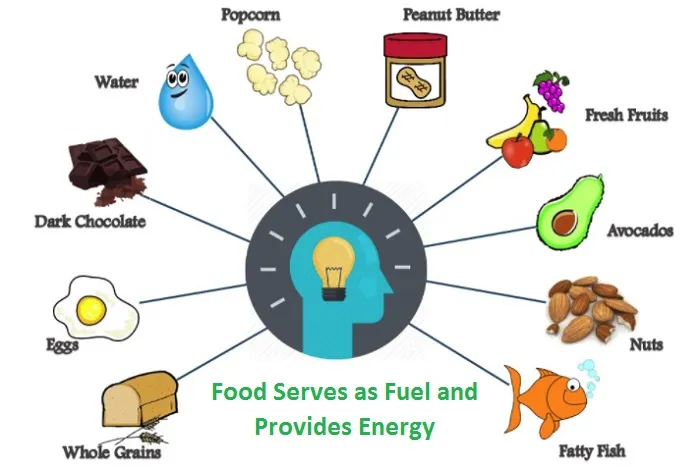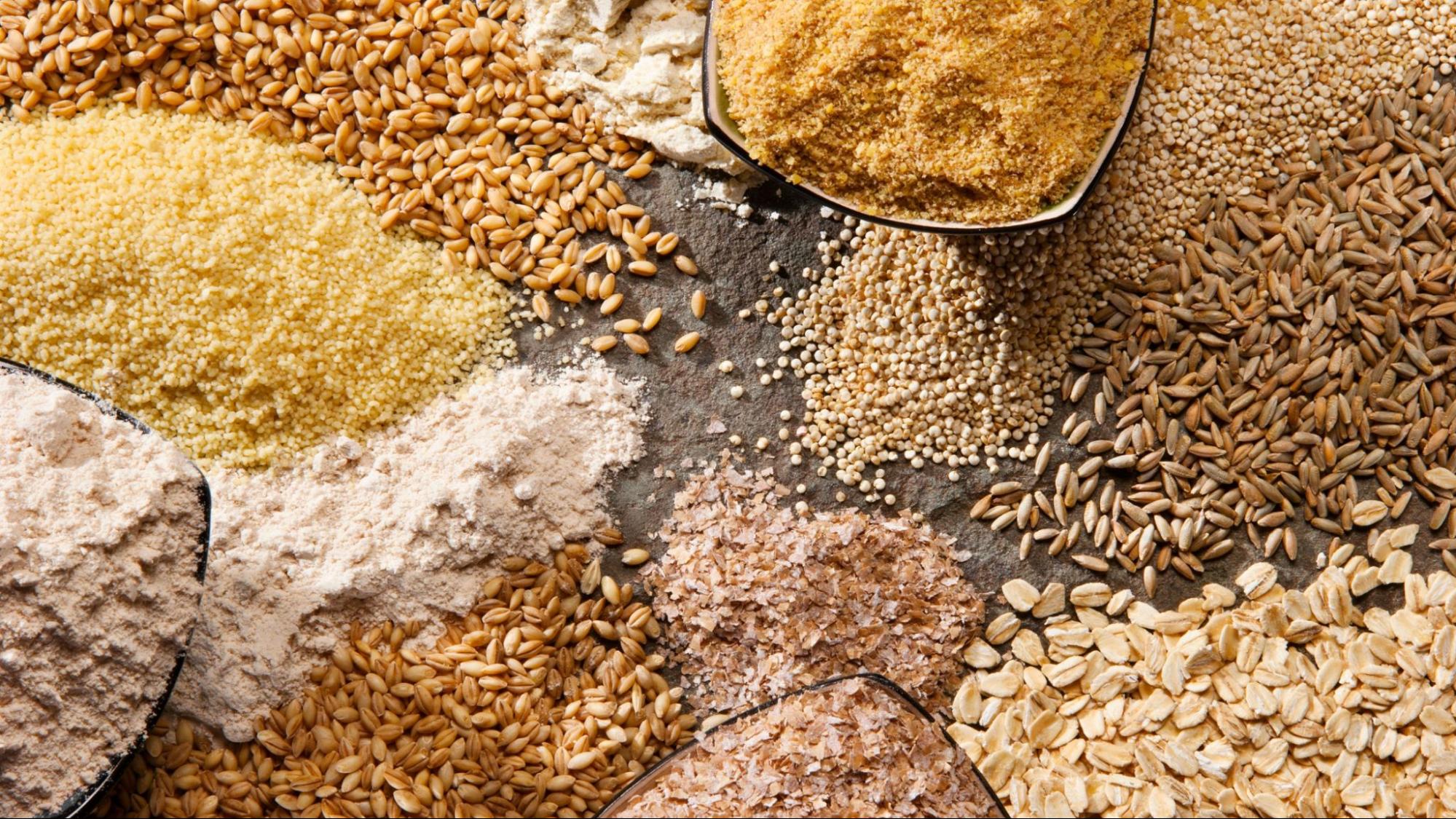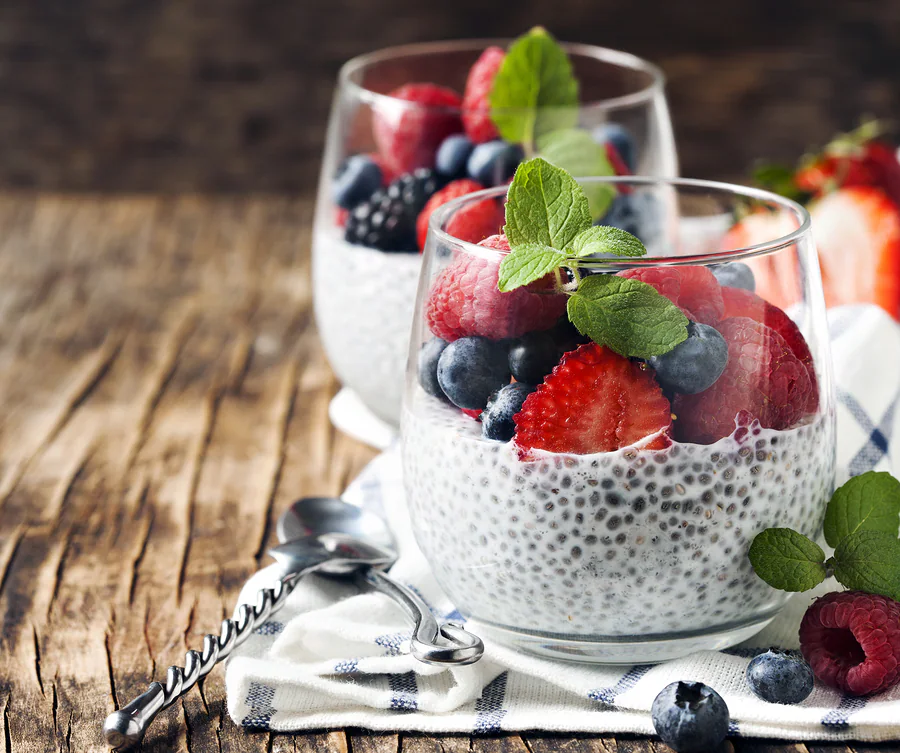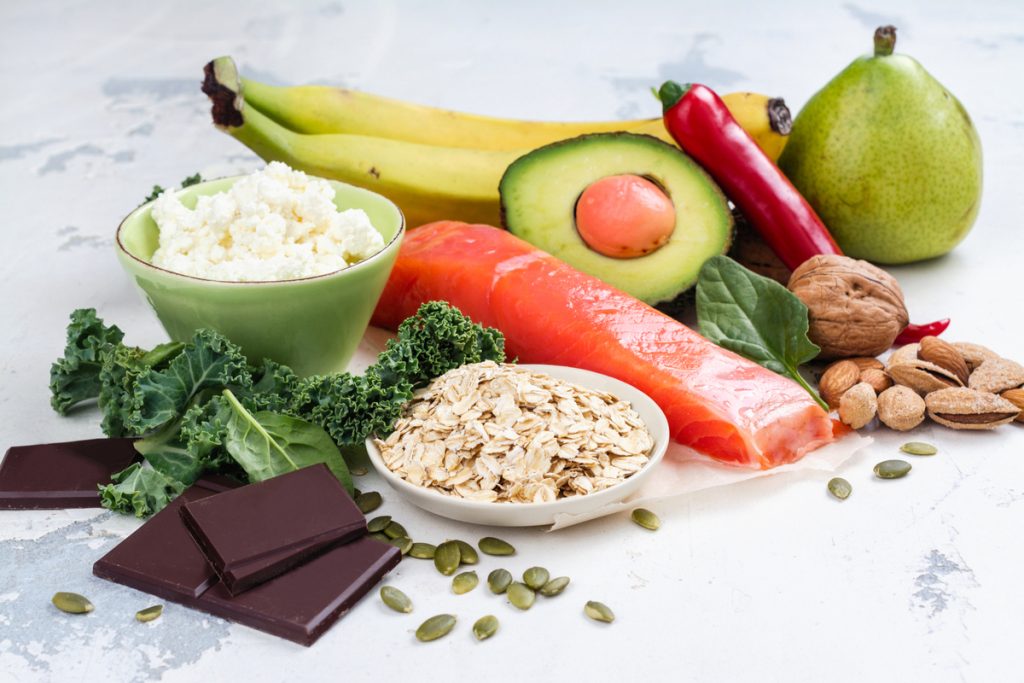We’ve all been there: that 3 PM slump when your focus fades and your eyelids feel heavy. It’s tempting to reach for a sugary snack or another cup of coffee for a quick jolt. But what if you could power your day with steady, reliable energy that doesn’t end in a crash?
The secret lies in what’s on your plate. Your energy levels are directly tied to the foods you eat. While processed snacks offer a fleeting burst, whole, nutrient-dense foods provide the sustained fuel your body needs to stay alert and productive. Understanding which foods build you up can transform your daily routine, especially if you start with the right foundation. For a closer look at how to begin your day strong, explore some of the best breakfast foods for energy. Let’s explore how food works as fuel and which natural boosters can help you conquer your day, every day.
How Food Provides Energy to Your Body
Think of your body as a high-performance engine. It needs the right kind of fuel to run efficiently. That fuel comes from the three main macronutrients in food: carbohydrates, proteins, and fats.

Your body breaks down these nutrients and converts them into adenosine triphosphate (ATP), the primary energy currency for your cells. But not all foods release energy at the same speed. The key difference lies between quick-release and slow-release sources.
Simple sugars give you a fast spike, but the subsequent crash can leave you feeling more tired than before. In contrast, complex carbohydrates, combined with fiber, protein, and healthy fats, provide a slow, steady stream of energy. Fiber is particularly important because it slows down digestion, ensuring that fuel is released gradually. Vitamins and minerals also play a vital role, acting as the spark plugs that help facilitate these cellular energy reactions. Good hydration is equally essential, as water is involved in countless metabolic processes.
The Role of Carbohydrates in Energy Production
Carbohydrates are your body’s preferred and most direct energy source. When you eat carbs, your digestive system breaks them down into glucose (sugar). This glucose enters your bloodstream and is used for immediate energy or stored in your muscles and liver as glycogen for later use.
There are two types:
- Simple carbs: Found in candy, soda, and refined grains (like white bread), they digest quickly, causing a rapid spike and fall in blood sugar.
- Complex carbs: Found in whole grains, vegetables, and legumes, they are made of longer sugar molecule chains. They take more time to break down, providing a more stable and sustained release of energy.
How Protein and Healthy Fats Support Energy Levels
While carbs are the main fuel, protein and healthy fats are crucial for endurance. Protein helps build and repair tissues, and since it digests slowly, it promotes satiety and prevents the energy crashes associated with high-sugar snacks.
Healthy fats, found in foods like avocados and nuts, are the most concentrated source of energy. They are digested very slowly, providing a long-lasting fuel source that’s especially useful for longer periods of activity. They also help your body absorb essential fat-soluble vitamins that support overall function.
Best Fruits That Boost Energy Naturally
Fruits are nature’s candy, but they’re much smarter than the processed kind. They provide natural sugars for quick energy, but they come packaged with fiber, vitamins, and minerals. This combination prevents sharp blood sugar spikes and supports overall energy metabolism.
Bananas: Nature’s Perfect Energy Snack
There’s a reason athletes love bananas. Packed with natural sugars (glucose, fructose, and sucrose), they offer an instant yet sustained energy boost. A medium banana contains about 110 calories, along with potassium, which is vital for muscle function, and vitamin B6, which helps convert food into energy.
The fiber in bananas slows down the absorption of sugar, giving you lasting fuel without the crash. They’re perfect before a workout or as a simple afternoon pick-me-up.
Berries and Other Energy-Boosting Fruits
Beyond bananas, many other fruits are excellent for vitality. Eating a variety of colorful fruits can also have a positive impact on your well-being, as certain nutrients are linked to how you feel. It’s interesting to see how food can improve your mood through these natural sources.
- Berries: Strawberries, blueberries, and raspberries are low in sugar but high in antioxidants and vitamin C, which helps turn fat into energy.
- Avocados: Rich in healthy fats and fiber, avocados provide slow-burning energy that keeps you full for hours.
- Dates: These are a concentrated source of natural sugars and minerals like potassium and iron, making them a great natural energy shot.
- Citrus Fruits: Oranges and grapefruits are famous for their high vitamin C content, which can help reduce fatigue.
Whole Grains for Sustained Energy
Whole grains are a cornerstone of an energy-sustaining diet. Unlike refined grains, which are stripped of their nutrients, whole grains contain the entire grain kernel. This means they are rich in complex carbohydrates, fiber, B vitamins, iron, and magnesium—all essential for steady energy.

Oatmeal: The Energy-Packed Breakfast
Starting your day with a bowl of oatmeal is one of the best ways to ensure lasting energy. It’s loaded with complex carbs and a special type of soluble fiber called beta-glucan. This fiber forms a thick gel in your digestive tract, which slows down digestion and promotes a steady release of glucose into the bloodstream. Oats are also a great source of iron and B vitamins, which fight fatigue.
Brown Rice, Quinoa, and Other Whole Grains
- Brown Rice: A fantastic source of fiber and manganese, a mineral that helps break down carbs and proteins to generate energy. One cup contains about 216 calories.
- Quinoa: This popular seed is a complete protein, meaning it contains all nine essential amino acids. With 222 calories per cooked cup, its combination of protein, fiber, and complex carbs makes it an energy powerhouse.
- Whole Wheat Products: Breads and pastas made from 100% whole wheat provide more fiber and nutrients than their white-flour counterparts.
Nuts and Seeds for Long-Lasting Energy
Nuts and seeds are small but mighty. They are packed with a balanced mix of healthy fats, protein, and fiber, making them an ideal snack for slow-release energy. They are also rich in magnesium, a mineral involved in hundreds of enzymatic reactions in the body, including energy production. Just be mindful of portions, as they are calorie-dense.
Almonds, Cashews, and Walnuts
- Almonds and Cashews: Both are excellent sources of magnesium. A slight deficiency in magnesium can lead to fatigue, so including these nuts can help maintain your energy levels.
- Walnuts: These are unique for their high content of omega-3 fatty acids, which have been shown to fight inflammation and improve brain function.
- Pistachios and Peanuts: Both provide a solid mix of protein, fat, and fiber to keep you fueled and satisfied.
Energy-Boosting Seeds: Chia, Flax, and Sesame
Don’t overlook seeds. They are easy to add to smoothies, salads, or oatmeal for an extra energy kick.
- Chia Seeds: These tiny seeds are rich in fiber, protein, and omega-3s. They absorb liquid and expand, which helps you stay hydrated and full.
- Flax Seeds: A great source of healthy fats and lignans, which have antioxidant properties.
- Sesame Seeds: High in magnesium, which helps convert sugar into usable energy.
Protein-Rich Foods That Fuel Your Body
Protein is essential for maintaining muscle mass and promoting satiety. While not a primary energy source like carbs, it plays a key role in stabilizing blood sugar. Including protein in your meals prevents the rapid spikes and dips that can cause energy drain. A steady intake can also help you better manage daily pressures and may be one of the effective foods to relieve stress.
Eggs: Complete Protein for All-Day Energy
Eggs are often called the perfect protein source. A large egg contains about 72 calories, high-quality protein, and essential B vitamins, particularly B12, which is crucial for energy production. The combination of protein and healthy fat provides sustained energy and keeps you feeling full, making eggs a fantastic choice for any meal of the day.
Lean Meats, Fish, and Plant-Based Proteins
- Lean Meats: Chicken and turkey are excellent sources of protein without excess saturated fat.
- Fatty Fish: Salmon and sardines are rich in omega-3 fatty acids, which can reduce inflammation—a common cause of fatigue.
- Lentils and Beans: These plant-based powerhouses are loaded with fiber, protein, and iron. A cup of cooked lentils provides around 230 calories.
- Tofu: A versatile plant-based protein that provides all essential amino acids.
- Yogurt: Especially Greek yogurt, is high in protein and contains probiotics that support gut health, which is closely linked to overall energy.
Vegetables That Increase Energy and Stamina
Vegetables provide the essential vitamins, minerals, and antioxidants your body needs to function optimally. Their fiber content also contributes to steady energy release. Focusing on a variety of colorful vegetables ensures you get a wide range of nutrients.
Leafy Greens: Spinach, Kale, and Chard
Leafy greens are true superfoods for energy. They are packed with iron, which is essential for creating hemoglobin, the protein in red blood cells that transports oxygen throughout your body. Low iron levels can lead to fatigue and weakness. Greens also contain vitamin C, which helps your body absorb iron more effectively, and magnesium for cellular energy production.
Sweet Potatoes and Other Energy Vegetables
- Sweet Potatoes: With around 86 calories per 100g, sweet potatoes are a fantastic source of complex carbohydrates and fiber. They are also high in manganese, which helps your body break down other nutrients for energy.
- Beets: Rich in nitrates, which can improve blood flow and oxygen delivery, boosting stamina.
- Cauliflower and Squash: These vegetables provide steady energy through fiber and are packed with vitamins and minerals.
Additional Energy-Boosting Foods and Drinks
Beyond the main food groups, several other snacks and drinks can give you a natural lift.

Dark Chocolate and Natural Energy Treats
Yes, chocolate can be good for you! Dark chocolate (70% cocoa or higher) contains natural stimulants like caffeine and theobromine that can boost energy and mood. It’s also rich in antioxidants. A small square, about 60 calories, is enough to give you a lift without excess sugar.
Yogurt, Hummus, and Other Energy Snacks
- Yogurt: As mentioned, its protein and probiotics are great for sustained energy.
- Hummus: Made from chickpeas, tahini, and olive oil, hummus offers a balanced mix of protein, carbs, and healthy fats. A typical serving has around 166 calories.
- Peanut Butter: A classic energy snack with about 190 calories per two-tablespoon serving, it provides lasting fuel from protein and healthy fats.
- Coconut Water: A great natural hydrator filled with electrolytes like potassium.
Foods to Avoid for Better Energy
Just as important as knowing what to eat is knowing what to limit. Certain foods can drain your energy and leave you feeling sluggish.
- Sugary Snacks and Drinks: Candy, pastries, and soda cause a rapid blood sugar spike followed by a severe crash.
- Refined Carbohydrates: White bread, white pasta, and white rice act similarly to sugar in the body, disrupting stable energy levels. These are often considered some of the primary foods that cause stress on the body’s systems.
- Highly Processed Foods: These often contain unhealthy fats, sugar, and sodium, offering little nutritional value and contributing to inflammation and fatigue.
- Excessive Caffeine: While a small amount can help, relying on multiple cups of coffee or energy drinks can disrupt sleep patterns and lead to a cycle of fatigue.
How to Build an Energy-Boosting Meal Plan
Creating an energy-focused meal plan is about balance and consistency. Instead of focusing on a single meal, think about how you fuel your body throughout the entire day. The practice of mindful eating can help you become more aware of how different foods affect your energy and well-being.
Here are a few simple principles:
- Eat Regularly: Aim for a meal or small snack every 3-4 hours to maintain stable blood sugar.
- Balance Your Plate: At each meal, include a source of complex carbohydrates, lean protein, and healthy fats.
- Stay Hydrated: Drink plenty of water throughout the day. Dehydration is a leading cause of fatigue.
- Plan Ahead with healthy meal prep: Prepare healthy snacks like a handful of nuts, a piece of fruit, or a hard-boiled egg so you have good options ready when hunger strikes.
Sample Combinations:
- Breakfast: Oatmeal with berries and a sprinkle of chia seeds.
- Lunch: A large salad with leafy greens, grilled chicken or chickpeas, quinoa, and an olive oil vinaigrette.
- Snack: An apple with a tablespoon of peanut butter or Greek yogurt.
- Dinner: Baked salmon with roasted sweet potatoes and steamed broccoli.
Small, thoughtful choices about the food you eat can have a huge impact on your daily energy. By focusing on whole, nutrient-dense options, you provide your body with the high-quality fuel it deserves. At Not One Type, we believe that building a healthier relationship with food is a cornerstone of personal growth.


Có thể bạn quan tâm
Healthy Eating on the Go: Simple Strategies for Busy Lifestyles
Maintaining nutritious eating habits while managing a hectic schedule can feel overwhelming, but healthy eating...
Dec
Healthy Snack Ideas for On the Go: Easy Portable Options for Busy Lifestyles
Finding nutritious snacks that travel well can transform your daily routine and help you maintain...
Dec
How to Build Sustainable Eating Habits: A Guide to Healthier Living and a Greener Planet
Sustainable eating habits involve choosing foods that support both personal health and environmental wellbeing. It’s about...
Dec
Healthy Grocery List: Complete Guide + Printable Template
Creating a healthy grocery list is one of the most effective first steps you can...
Dec
Healthy Grocery List for 2: Complete Guide to Smart Shopping and Meal Planning
Shopping for two people requires a strategic approach to avoid waste while maintaining a healthy...
Dec
How to Stock a Pantry: Your Complete Guide to Essential Kitchen Staples
A well-stocked pantry is the heart of a happy, efficient kitchen. It’s your secret weapon...
Dec